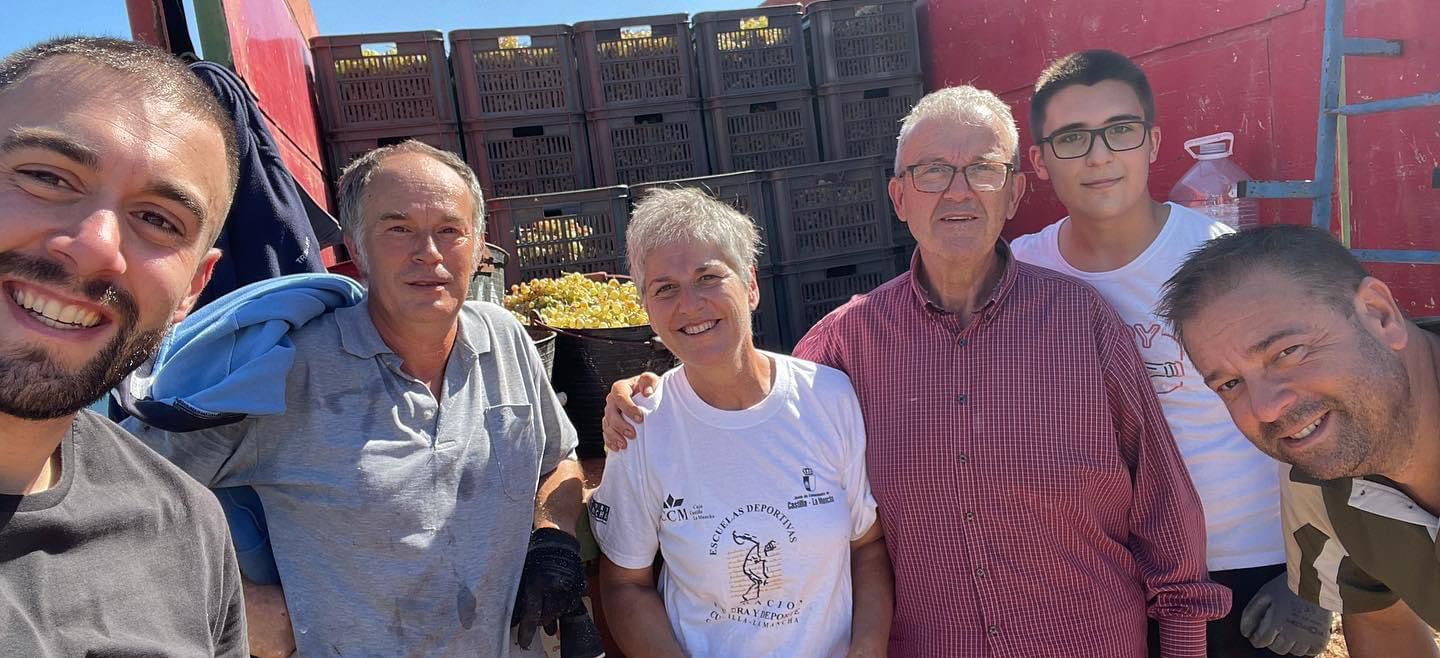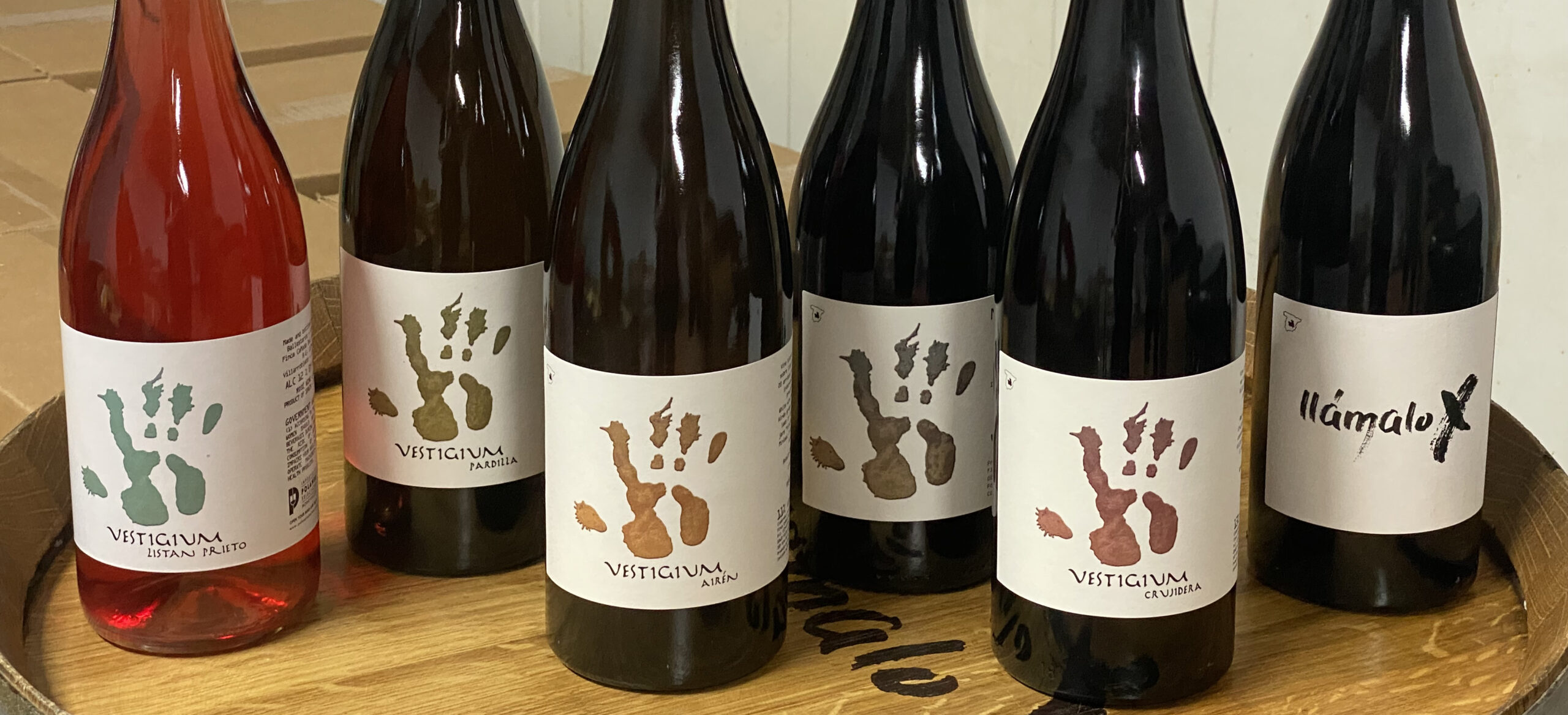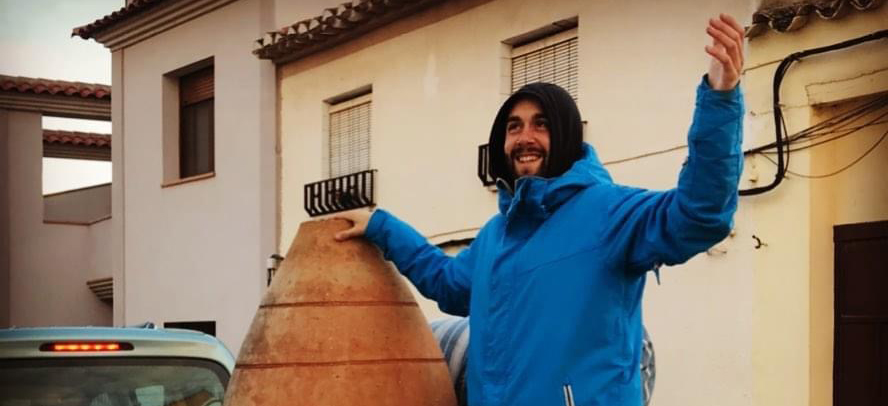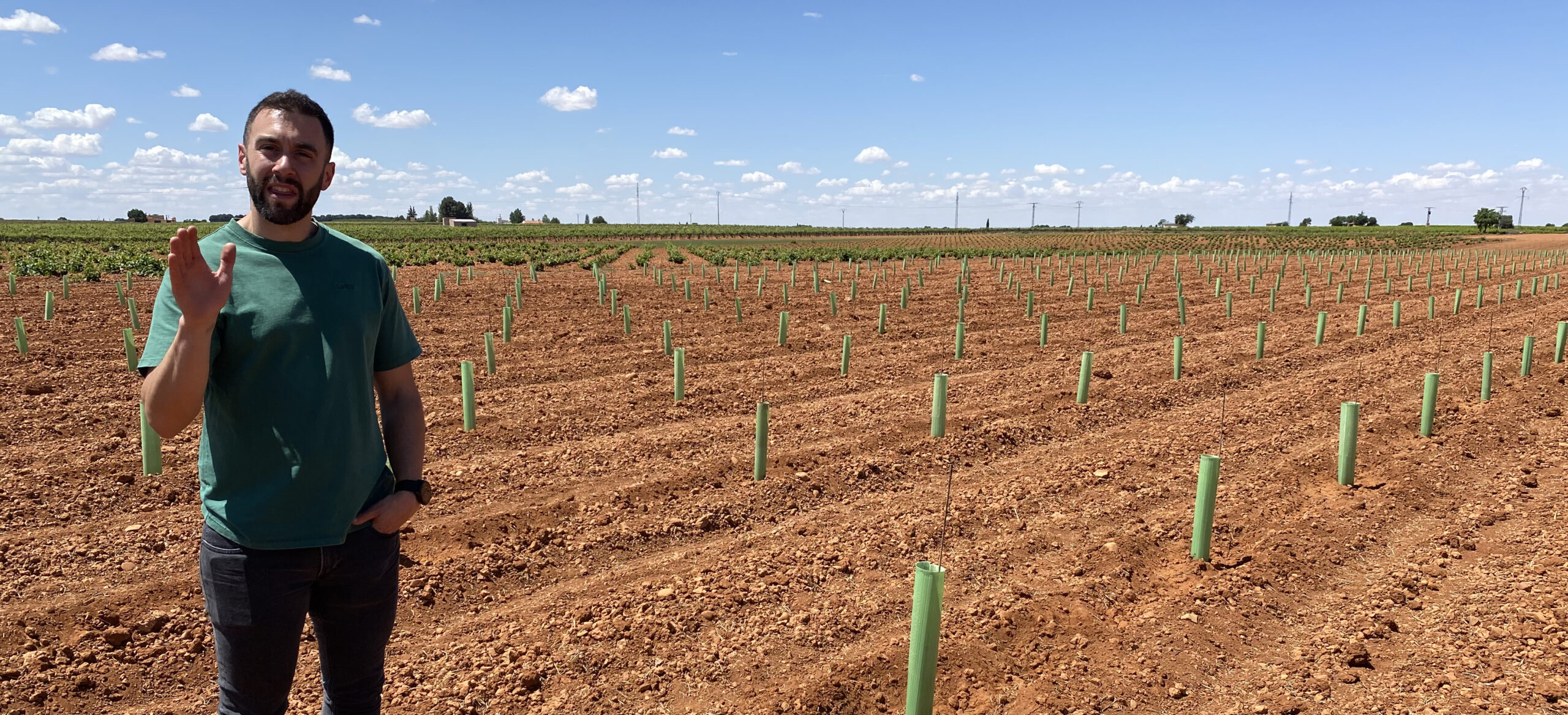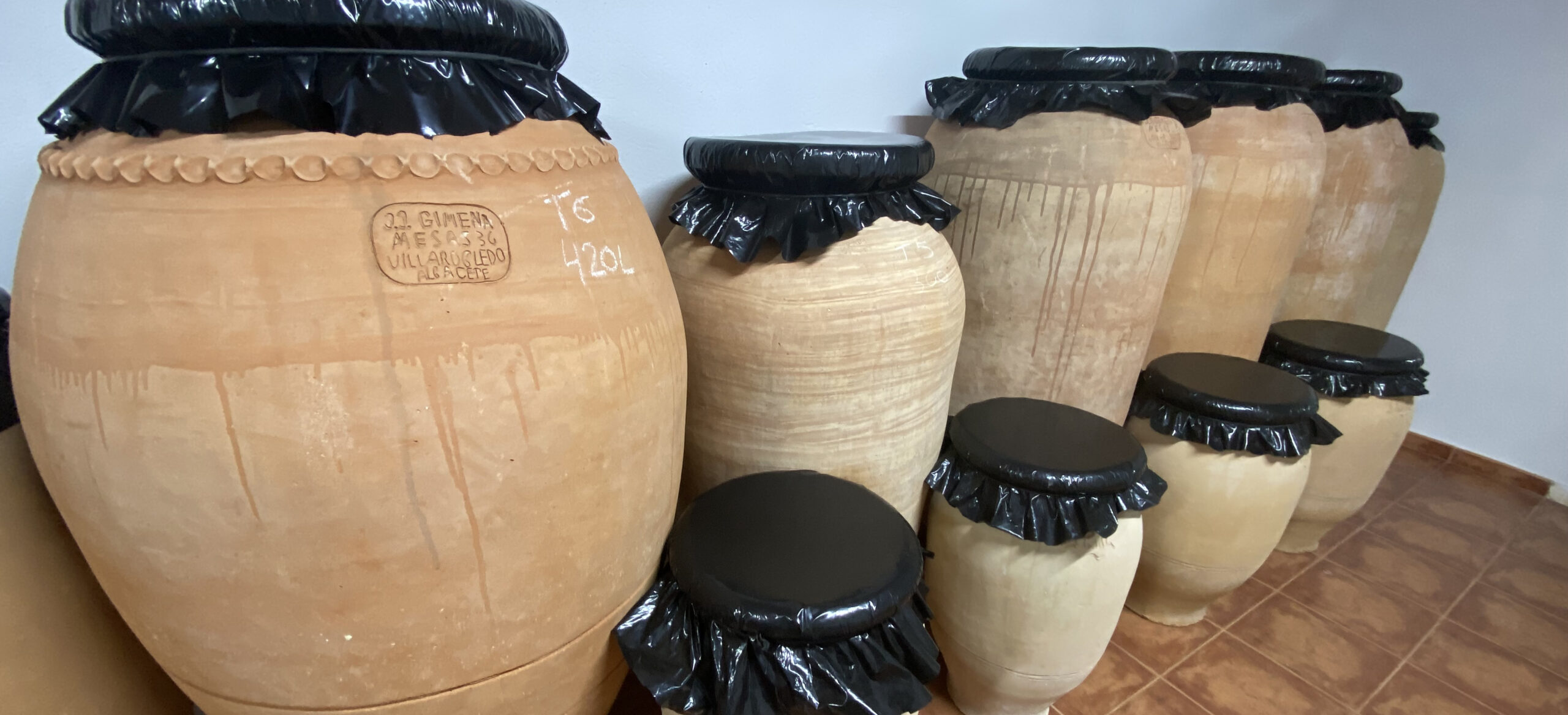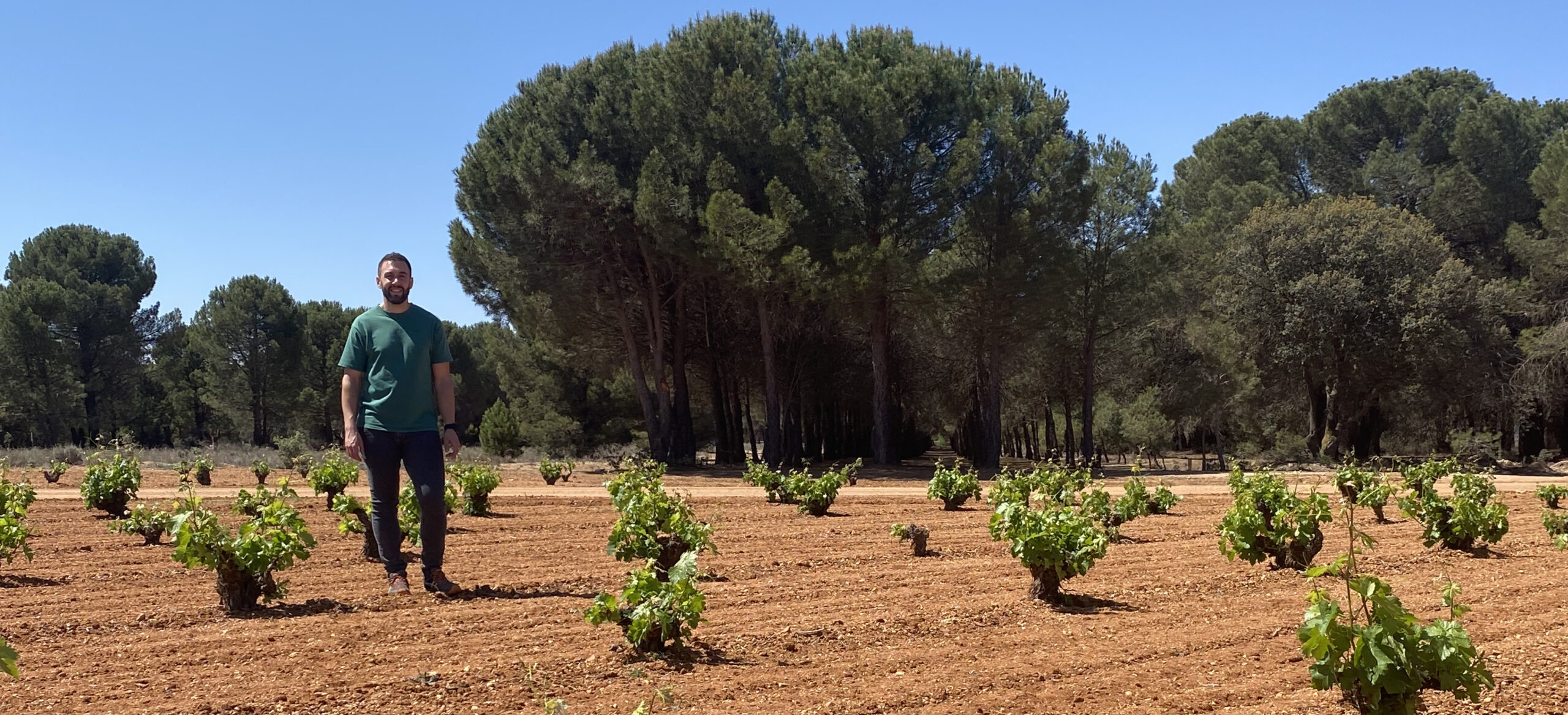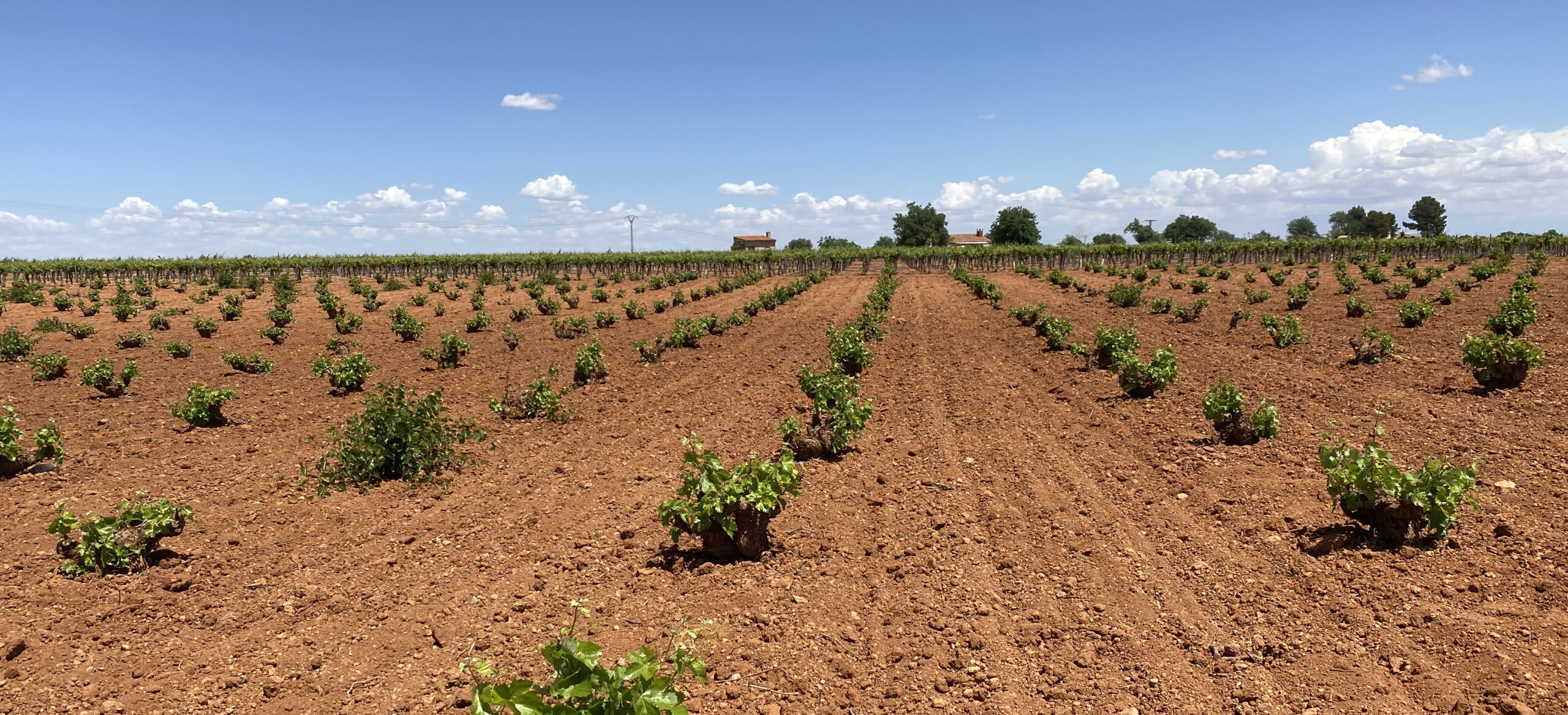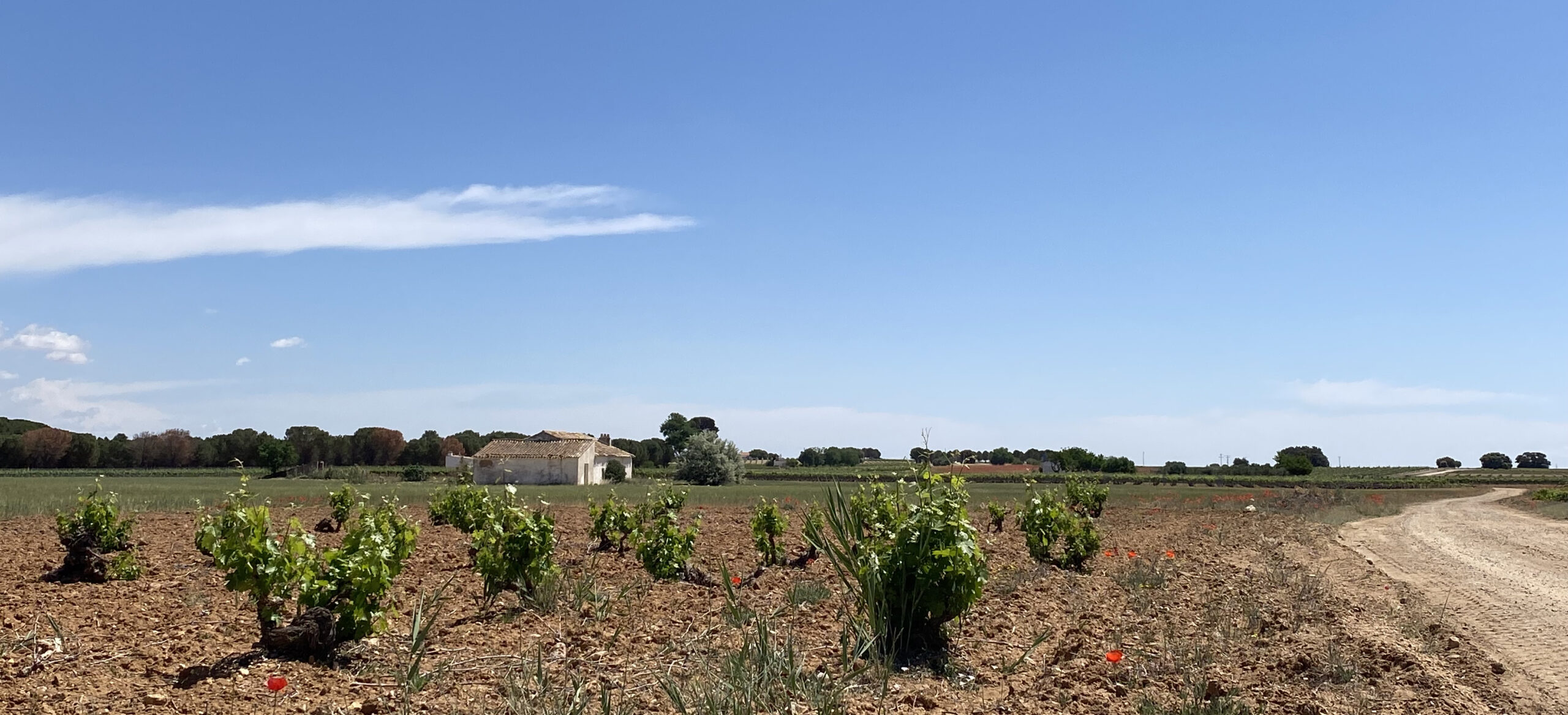Vinos Llámalo X (pronounced "yah-mah-low") is an exciting new project from José Joaquín Ballesteros, a young winemaker making distinctive, small-production wines in the province of Albacete, Castilla La Mancha. José Joaquín’s hometown of Villarrobledo, located two hours southeast of Madrid, is home to 25,000 people and a staggering 30,000 hectares of vineyards (apparently, the town with the largest area of vines in the world!). La Mancha is famous as a volume-driven wine region, associated with inexpensive, mass-market wines. Behind its modern history of bulk wine production, however, La Mancha has a variety of excellent calcareous, clay, and sandy soils, high altitude, flat terrain, and extreme continental climate perfectly suited for healthy viticulture. Not to mention some very old vines (many dry-farmed and organic) and a rich winegrowing tradition stretching back to Roman times.
“Llámalo X” translates to “Call it ‘X’”, where ‘X’ refers to an unknown entity. The vineyards of Villarrobledo contain a marvelous range of rare local grapes like Pardilla, Crujidera, and Listán Prieto (yes, Listán Prieto!), planted among perfectly adapted old vines of the more typical Castilian varieties Airén (popular for distillation, but very capable of making complex white wines) and Cencibel (the local clone of Tempranillo). In addition to this unique patrimony of unusual varieties, Villarrobledo boasts several special types of clay, which run in thick layers 30-50 meters underground, and led to the development of a serious amphora production industry that thrived from the 1600s until the 1940s, when the industrial model supplanted small-scale family wineries all over Spain. According to producers who work with the tinajeros (artisan amphora producers) of Villarrobledo, these painstakingly constructed fermentation vessels offer very subtle oxygenation and make a very fine finished wine, without the rustic texture or flavor of clay. Elisabetta Foradori and Giusto Occhipinti of COS are the most famous devotées of Villarrobledo amphora, who both share a preference for the creations of recently-retired Tinajero Juan Padilla. Foradori describes it beautifully: “Villarrobledo clay is clay for wine, it has a special energy and quality. Not just the clay, but also the use of fire for the kilns and the rhythms with which they make the tinajas are different. In these tinajas, there are all the elements: heart, air, sun, fire, and water.”
Ranging from petite 60-liter models to huge 4000+ liter clay tanks, Villarrobledo’s history provides a unique opportunity to match Llámalo X’s micro-vinifications of local varieties with local vessels that are designed for the job. José Joaquín descends from grape growers on his father’s side and tinajeros on his mother’s side. With the expert help of his father, Jose Sr., and his uncle, Constancio Ballesteros (founder, along with his wife Nancy Castro, of pioneering winery Vinos Tendal in La Palma, Canary Islands), he has set about combining these legacies into Vinos Llámalo X, resuscitating his region’s fabulous local varieties, recuperating old Villarrobledo amphora, and letting both components shine through fresh, vivid, and personal whites, reds, and rosés. A thoroughly local and updated take on Manchego wines! ECOLOGICAL farming
